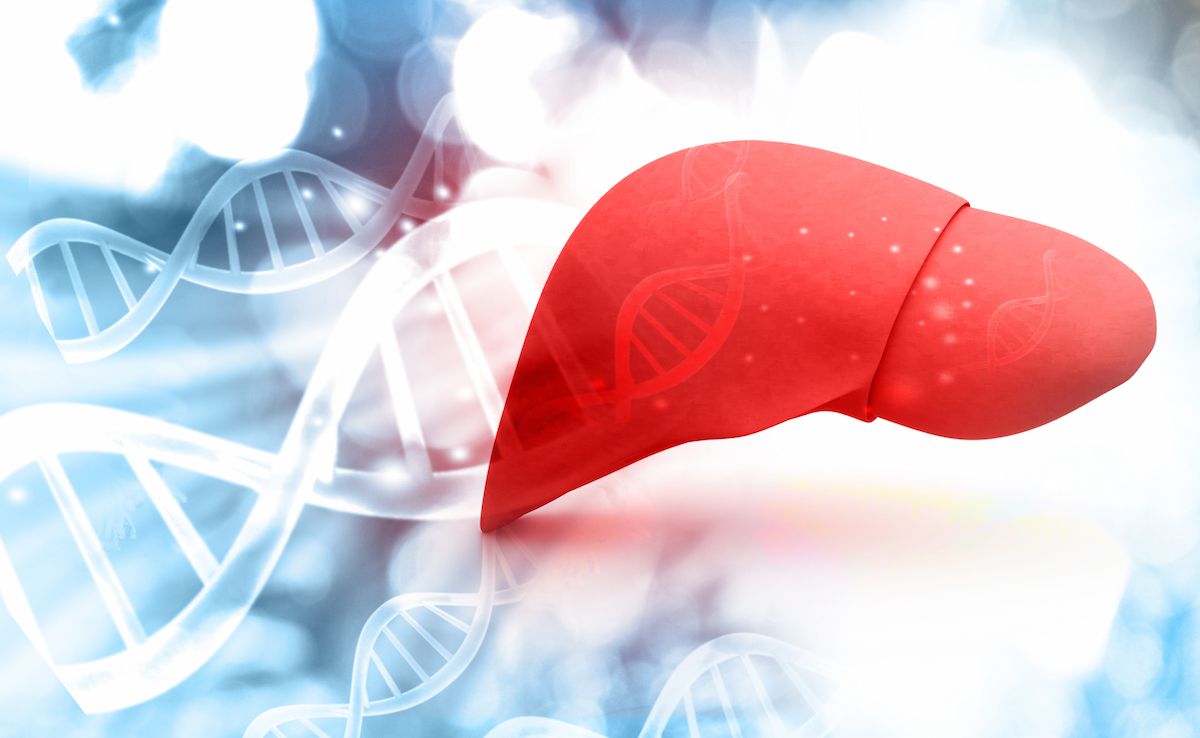Nivolumab/Ipilimumab Significantly Improves OS in Advanced Liver Cancer
The safety of nivolumab plus ipilimumab among those with hepatocellular carcinoma in the CheckMate-9DW trial appears to be comparable with prior reports.
In the open-label phase 3 CheckMate-9DW trial, an approximate population of 668 patients were randomly assigned to receive nivolumab at 1 mg/kg plus ipilimumab at 3 mg/kg every 3 weeks for up to 4 doses followed by nivolumab monotherapy at 480 mg every 4 weeks or treatment with sorafenib or lenvatinib as oral capsules.

Combining nivolumab (Opdivo) with ipilimumab (Yervoy) as frontline therapy produced a statistically significant and clinically meaningful improvement in overall survival (OS) compared with sorafenib (Nexavar) or lenvatinib (Lenvima) among patients with previously untreated advanced hepatocellular carcinoma (HCC), according to a press release on findings from the phase 3 CheckMate-9DW trial (NCT04039607).1
The OS improvement with the nivolumab-based regimen reached the trial’s primary end point. Additionally, the safety profile of nivolumab plus ipilimumab was comparable with prior reports of each agent. Investigators reported no new safety signals.
Developers plan to fully assess the trial data, present the results at a later medical meeting, and discuss their findings with regulatory health authorities.
“[Patients with] advanced stage liver cancer remain in need of additional treatment options that may help improve survival,” Dana Walker, MD, MSCE, vice president and global program lead of gastrointestinal and genitourinary cancers at Bristol Myers Squibb, the developers of nivolumab and ipilimumab, said in the press release.1 “The [OS] benefit demonstrated by the combination of [nivolumab] plus [ipilimumab] in the CheckMate-9DW trial demonstrates its potential to improve outcomes compared [with] well-established [tyrosine kinase inhibitor] treatment options.”
In the open-label phase 3 CheckMate-9DW trial, an approximate population of 668 patients were randomly assigned to receive nivolumab at 1 mg/kg plus ipilimumab at 3 mg/kg every 3 weeks for up to 4 doses followed by nivolumab monotherapy at 480 mg every 4 weeks or treatment with sorafenib or lenvatinib as oral capsules.
The trial’s secondary end points included objective response rate (ORR), duration of response (DOR), and time to symptom deterioration.2
Patients 18 years and older with histologically confirmed HCC and advanced disease were able to enroll on the trial. Additional eligibility criteria included having at least 1 measurable lesion based on RECISTT v1.1 guidelines, a Child-Pugh score of 5 or 6, and an ECOG performance status of 0 or 1.
Those with known fibrolamellar HCC, sarcomatoid HCC, or mixed cholangiocarcinoma and HCC histology were unable to enroll on the trial. Patients were also unsuitable for enrollment if they had a prior liver transplant, prior grade 2 or higher hepatic encephalopathy within 12 months before randomization, or active brain metastases or leptomeningeal metastases.
The FDA previously granted accelerated approval to nivolumab plus ipilimumab as a treatment for patients with advanced HCC who have received prior therapy with sorafenib in March 2020.3 Supporting data for this approval came from the phase 1/2 CheckMate -040 trial (NCT01658878).
In a cohort of patients with HCC, the ORR was 33% (n = 16/49; 95% CI, 20%-48%) with nivolumab plus ipilimumab, which included complete responses in 8% (n = 4/49) and partial responses in 24% (n = 12/49). The DOR with study treatment ranged from 4.6 months to 30.5+ months, with 88% of responses being sustained for 6 or more months. Additionally, 56% of responses lasted for at least a year, and responses were ongoing for at least 2 years in 31% of those with a response.
“HCC is an aggressive disease in need of different treatment approaches. The [ORR] observed in the [nivolumab plus ipilimumab] cohort of the CheckMate-040 trial underscores the potential of this dual immunotherapy as a possible treatment option for patients,” lead study investigator Anthony B. El-Khoueiry, MD, an associate professor Clinical Medicine at the Keck School of Medicine of the University of Southern California (USC) and the USC Norris Comprehensive Cancer Center said in a press release at the time of the approval.3
References
- Bristol Myers Squibb announces CheckMate -9DW trial evaluating Opdivo (nivolumab) plus Yervoy (ipilimumab) meets primary endpoint of overall survival for the first-line treatment of advanced hepatocellular carcinoma. News release. Bristol Myers Squibb. March 20, 2024. Accessed March 21, 2024. https://tinyurl.com/3akc7y75
- A study of nivolumab in combination with ipilimumab in participants with advanced hepatocellular carcinoma (CheckMate 9DW). ClinicalTrials.gov. Accessed March 21, 2024. https://tinyurl.com/3mmzxm2f
- U.S. Food and Drug Administration approves Opdivo® (nivolumab) + Yervoy® (ipilimumab) for patients with hepatocellular carcinoma (HCC) previously treated with sorafenib. News release. Bristol Myers Squibb. March 11, 2020. Accessed March 21, 2024. https://tinyurl.com/yvdr6b29
Adapting to a Robotic Workstation for Image-Guided Liver Cancer Surgery
December 4th 2023Govindarajan Narayanan, MD, speaks to the potential time-saving advantages of using the Epione robot for microwave ablation, cryoablation, and other surgical strategies in patients with liver cancer and other tumors.